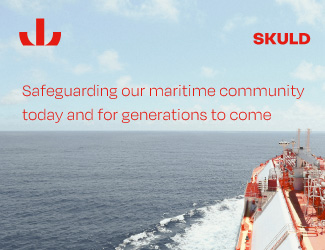The maritime crises demands structural changes in shipping companies. Young executives are required as the pastoral business environment has vanished, Orestis Schinas thinks
Arthur Miller in his play »Death of a Salesman« portrays the end of the »American Dream« and a dodge of[ds_preview] illusions and reality. The key-character indulges in illusions of the past, hopes to enjoy the former and lost pastoral life once again, and evades facing the new reality. His son realizes that the whole family prefers fibs to facts and tries to face the new »truth«.
Unfortunately the plot of this play resembles the strategy and thinking of many entrepreneurs, owners or managers of ships. After the collapse of the market at the end of 2008, with almost 95% drop of the BDI, many companies still hope that with the traditional mix of resources and strategies they will manage to survive in the coming years. The past and its effects can easily be explained by considering almost all deadly sins: sloth, pride, greed, etc.
Briefly stated, the strategy of cost-cutting, mitigation of any risk through an established web of relations, and adverse stance against innovation was successful in the past but definitely is not the appropriate mix for tomorrow. This aphorism is based on the single fact of the expected returns in the industry. Although financing is asset-backed, the returns do not lure investors and deem public financing a questionable gamble. The ranking of the industry against other sectors of S&P500 is rather unsatisfactory and shoddy; real estate for example ranks in the 7th place of service sector and offers circa 14% net margin.
The need for fresh capital is evident, main shipping banks are retreating and more sophisticated schemes than vanilla loans demand transparent structures, sufficient size, differentiation of the service or of the concept, experienced management team and last but not least attractive returns. Transparency implies that investors can have a real grip on the key data, indicators and financial results of the venture. This is also a regulatory requirement when »going public«, but still how many owners are ready to implement rules deeming operations sufficiently transparent and compromise with the necessary dilution of the control? At the end of the day, how many of the public ventures did pay off?
Sufficient size implies that many small companies have to get into the turbulence of mergers and acquisitions. This is not an easy task, especially when family interests blur the company strategy. This hard-to-accept evolution also suggests that some of the experienced executives might have to step down or eventually to set up their own business, resulting in direct competition with the former colleagues and employers. It is human, all too human, the desire to avoid all these troubles, yet financiers and investors do not share these worries.
Finally, differentiation of the business model or of the concept boils down to the necessary »story« that will fascinate investors along with returns. Yet this differentiation is either technology driven or based on innovation. Both terms, »technology« and »innovation« do not thrill the customers of the industry, i.e. charterers and users of the service, who opt for tested and proven solutions with regard to reliability and cost effectiveness.
The above cycle of concerns is not necessarily vicious. Apparently, many experienced executives in the industry will reject these ideas. Nevertheless before supporting, rejecting or even applauding an argument or an idea one should wonder cui bono? Instead of an equity injection in the maritime ventures it therefore might be a good idea to have a »new brain« injection in the industry first! It is imperative to attract smart people with experience from other industries too, who can transplant ideas that will eventually change the pattern of innovation, trust and returns. In the era of internet-mediated mass financing, such as crowd funding, where financial innovation emerges where traditional practices do not fit the bill, inventive yet unusual ideas are requested. Some whisper of baby bonds issued by shipping companies; these bonds could be an alternative in some cases, given market appetite and requirements. It is still debt that does not require dilution of control but suggests increased transparency and scrutiny from the analysts. As investors do not necessarily risk huge chunks of capital, a risky story of innovation could appeal their interest. Are baby bonds the solution of all problems? Of course not! Yet it is a possible option that requires young executives with experience not only in the maritime field but also in technology management, online business, crowd financing, etc. It is difficult to teach old dogs new tricks therefore a new generation of managers is required. New is not synonymous with young in this case; trust is still an issue, and younger guys at the helm have to earn it first.
Going back to the »Death of the Salesman«, the industry has to realize that the pastoral business environment of the previous decades has vanished. Even the geopolitical constants seem to shift towards a new equilibrium. Planning the future given the experience of the past is not enough. Replicating successful models and ideas of competitors is not enough either. There is not only one way of doing business; if this was the case then you could not paint thousand canvases on the same theme!
Author: Orestis Schinas, Hamburg School of Business Administration (HSBA),
Orestis.schinas@hsba.de
Orestis Schinas
















